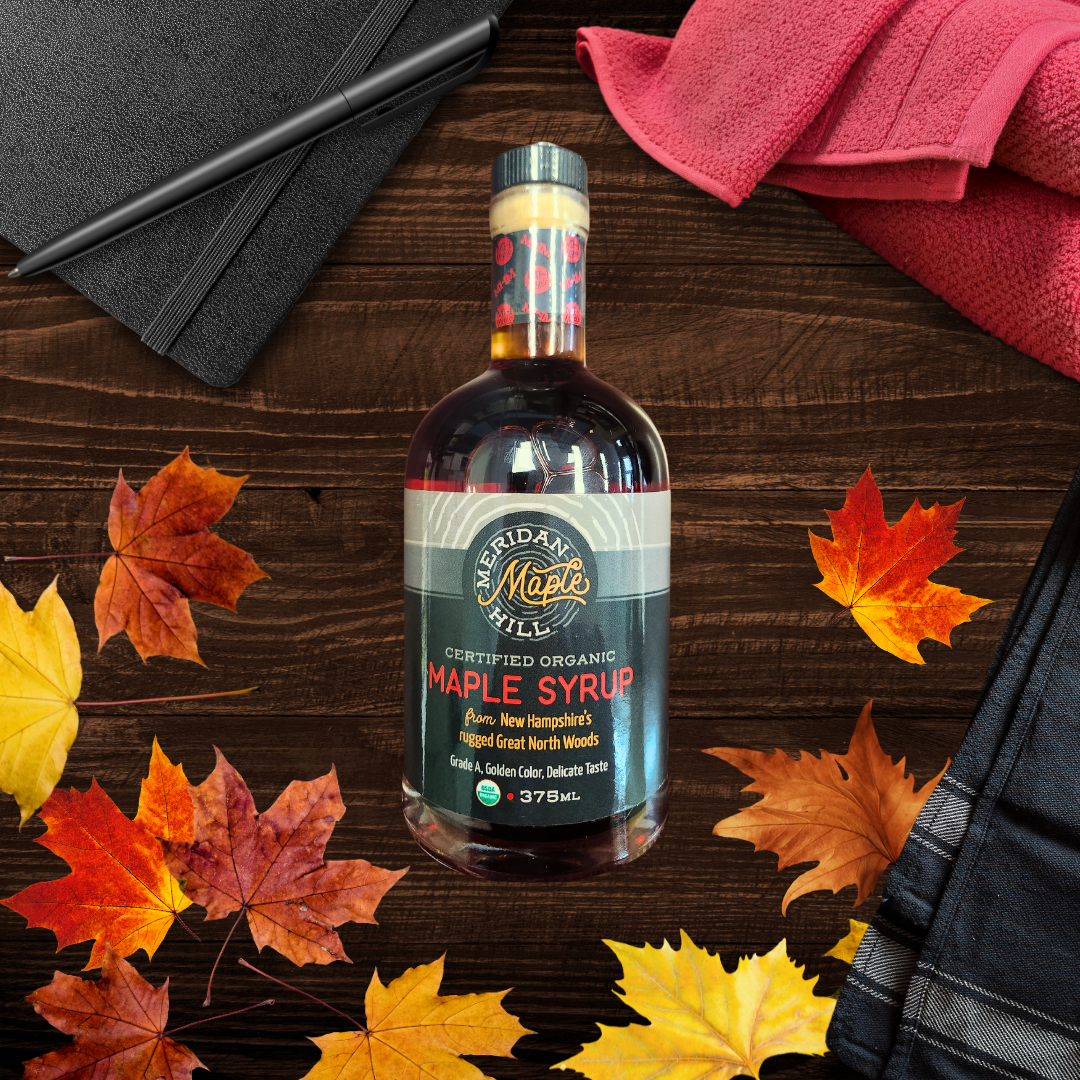Organic vs. Non-Organic Maple Syrup: What’s the Difference?
When shopping for maple syrup, you might wonder what sets organic syrup apart from its non-organic counterpart. Both options might look similar on the surface, but there are significant differences in how they’re produced, their environmental impact, and even their taste. Let’s dive into the key distinctions to help you make an informed choice.
Production Practices
Organic Maple Syrup:
Produced under strict standards that prohibit the use of synthetic pesticides, fertilizers, and chemicals.
Certified organic syrup comes from trees grown in clean, uncontaminated soil and tapped using eco-friendly methods.
Producers often implement sustainable forestry practices to maintain tree health and the surrounding ecosystem.
Non-Organic Maple Syrup:
May involve the use of synthetic chemicals or pesticides to protect trees from pests or diseases.
Producers may not follow the same sustainable practices, potentially affecting long-term forest health.
Often lacks the certification verifying clean and natural production methods.
Environmental Impact
Organic Maple Syrup:
Supports biodiversity by preserving forests and avoiding harmful chemicals.
Ensures that the sap is harvested without damaging the trees or surrounding environment.
Reduces soil and water pollution.
Non-Organic Maple Syrup:
The use of pesticides and synthetic fertilizers can harm the soil, water, and nearby wildlife.
Over-tapping trees without sustainable practices can weaken them, reducing syrup quality over time.
Flavor and Quality
Organic Maple Syrup:
Often has a richer, more robust flavor due to minimal processing and clean production methods.
Quality control ensures consistency and premium taste.
Non-Organic Maple Syrup:
Flavor can vary depending on production practices.
Chemical treatments may subtly impact the syrup’s taste.
Certification and Labeling
Organic Maple Syrup:
Must meet strict standards set by certifying bodies (e.g., USDA Organic).
Labels clearly indicate its organic status, offering peace of mind to consumers.
Non-Organic Maple Syrup:
Labels might lack transparency, making it harder to determine the syrup’s production process.
Health Considerations
Rich in Nutrients
Organic Maple Syrup:
Contains essential minerals like zinc, manganese, calcium, iron, and potassium, which support immune health, bone strength, and energy production.
The absence of synthetic chemicals during production ensures that the natural nutrient content is preserved.
Non-Organic Maple Syrup:
While it may also contain theses minerals, the potential exposure to synthetic chemicals during production can compromise its overall purity.
Non-organic practices may result in lower nutrient retention due to processing techniques.
Natural Antioxidants
Organic Maple Syrup:
Packed with over 24 antioxidants, such as phenolic compounds, which combat oxidative stress, reduce inflammation, and support heart health.
Organic production ensures these antioxidants remain intact, providing maximum health benefits.
Non-Organic Maple Syrup
May still contain antioxidants, but the potential use of chemicals during sap collection or tree maintenance can impact their natural potency.
Processing methods may degrade some of these beneficial compounds.
Lower Glycemic Index
Organic Maple Syrup:
Has a lower glycemic index than refined sugar and many artificial sweeteners, meaning it causes a slower, more controlled rise in blood sugar.
A cleaner production process ensures no added sugars or syrups are mixed in, preserving its natural benefits.
Transparency in every drop - our organic maple syrup is as pure as it gets, with no additives or preservatives.
Non-Organic Maple Syrup:
While still better than refined sugar, there’s a risk of added sugars and artificial ingredients that could increase the glycemic index.
Non-organic practices may involve the use of additives that affect its natural composition.
Free from Harmful Residues
Organic Maple Syrup:
Free from synthetic pesticides, herbicides, and chemical residues, ensuring a cleaner and safer product for consumption.
Ideal for those seeking a natural, chemical-free diet.
Non-Organic Maple Syrup:
May contain traces of synthetic pesticides or chemicals used during tree maintenance and syrup processing.
Prolonged exposure to such residues could pose long-term health risks, especially for those with sensitivities.
Supports Gut Health
Organic Maple Syrup:
Contains trace amounts of prebiotics, which can promote a healthy gut microbiome.
A clean, chemical-free product ensures no interference with gut health.
Non-Organic Maple Syrup:
The presence of chemicals or additives could disrupt the gut microbiome over time.
While it may still offer some prebiotic benefits, the potential for synthetic residues reduces its overall gut health value.
Additives & Preservatives
Organic Maple Syrup:
Pure and minimally processed, ensuring no artificial flavors, colors, or preservatives are added.
This natural purity makes it a superior choice for health-conscious consumers.
Non-Organic Maple Syrup:
May include artificial additives or preservatives to extend shelf life or enhance flavor.
These additives can impact the syrup’s natural taste and reduce its health benefits.
Why Choose Organic Maple Syrup?
While both types of syrup may satisfy your sweet tooth, organic syrup offers additional benefits:
You’re supporting sustainable practices that preserve forests.
You’re choosing a product free from harmful chemicals.
You’re likely to enjoy a purer, more authentic flavor.
Final Thoughts
While non-organic maple syrup may still be a better alternative to refined sugar, organic maple syrup is the healthier, safer, and more sustainable choice. By opting for organic, you avoid potential chemical exposure, benefit from higher antioxidant and nutrient levels, and support eco-friendly production practices.
Choose organic for a naturally sweet and healthful addition to your diet.
Ready to experience the rich, natural flavor of organic maple syrup? Shop now here.









